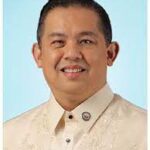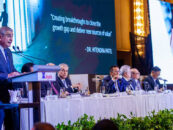
Philippines Wants to Spearhead AI Regulatory Framework for ASEAN
by Fintech News Philippines January 31, 2024The Philippines has indicated plans to introduce a regulatory framework for artificial intelligence (AI) within the Association of Southeast Asian Nations (ASEAN). This was announced by the Speaker of the Philippine Congress, Martin Romualdez, at the World Economic Forum held in Davos.
Drawing upon preliminary legislation drafted within the Philippines, the Speaker said this endeavour will aim to standardise AI regulations across the ASEAN member states.
Set to be unveiled during the Philippines’ tenure as ASEAN chair in 2026, this initiative reflects the country’s commitment to prioritising digitisation and cybersecurity within its economic policy framework. Romualdez underscored the critical role of generative AI, a technology poised to revolutionise various sectors, emphasising the necessity for a supportive regulatory environment to harness its potential responsibly.

Martin Romualdez
“We’d like to give as a gift to the ASEAN a legal framework. […] Digitisation, even in our economic policy is very, very much right up there as a priority,”
said Speaker Romualdez.
“Alongside that is cybersecurity, and the concomitant concerns and issues as generative artificial intelligence, a field that needs a lot of support and regulation. We feel that in ASEAN, we can capitalise and optimise these developments, but within a framework of regulatory support for this.”
The introduction of a unified AI framework in ASEAN, a region home to nearly 700 million individuals across 10 countries with diverse legal systems, represents a significant departure from the prevailing approach. Until now, ASEAN has favoured a more laissez-faire attitude towards AI governance, opting for a voluntary guide aimed at minimising regulatory burdens to spur innovation.
This shift towards a structured AI framework underscores the urgency felt by the Philippines due to the potential impacts of AI advancements on its significant business process outsourcing industry. Highlighting the industry’s vulnerability, Speaker Romualdez advocated for a strategy of workforce development and skill enhancement to meet the demands of a rapidly evolving technological landscape.
By proposing an AI framework that is not only suited to the Philippines but also adaptable for use across ASEAN, the Philippines is potentially looking to lead by example. This initiative seeks to create a balanced approach to AI development, promoting technological innovation while ensuring adequate regulatory oversight within the diverse Southeast Asian region.








